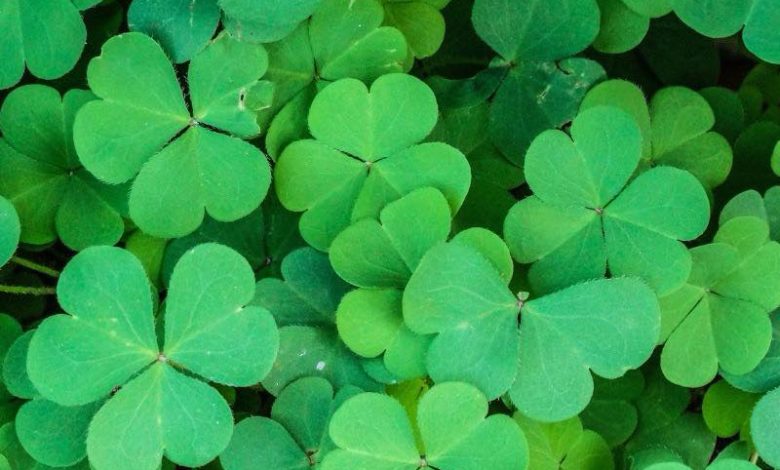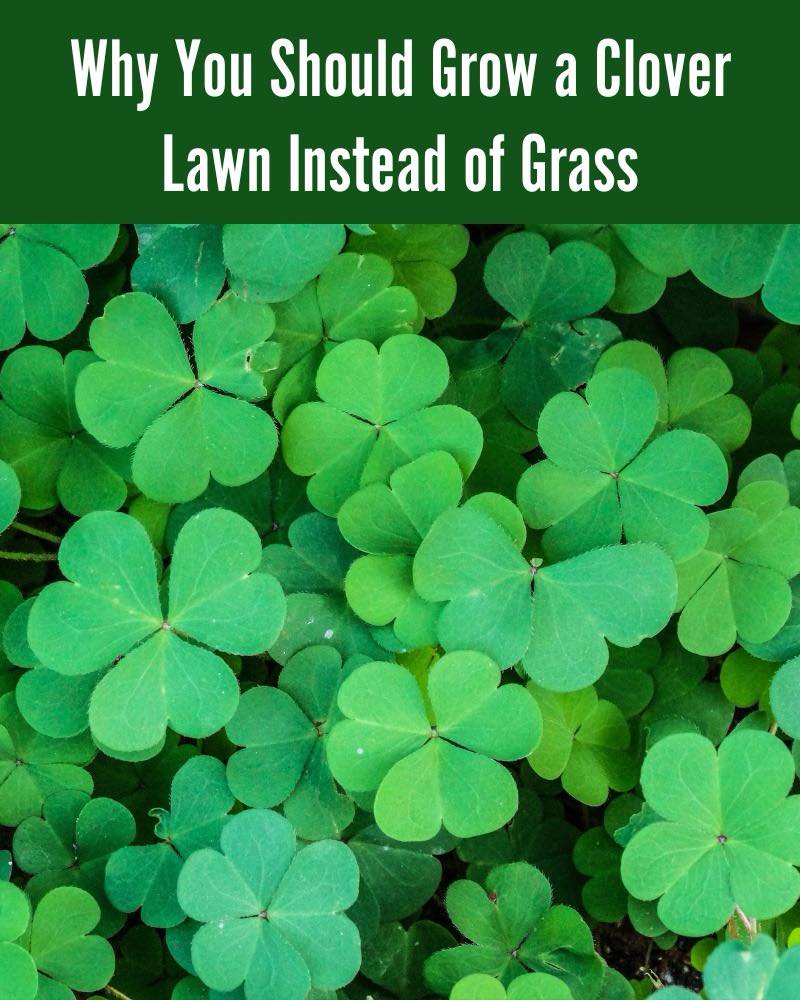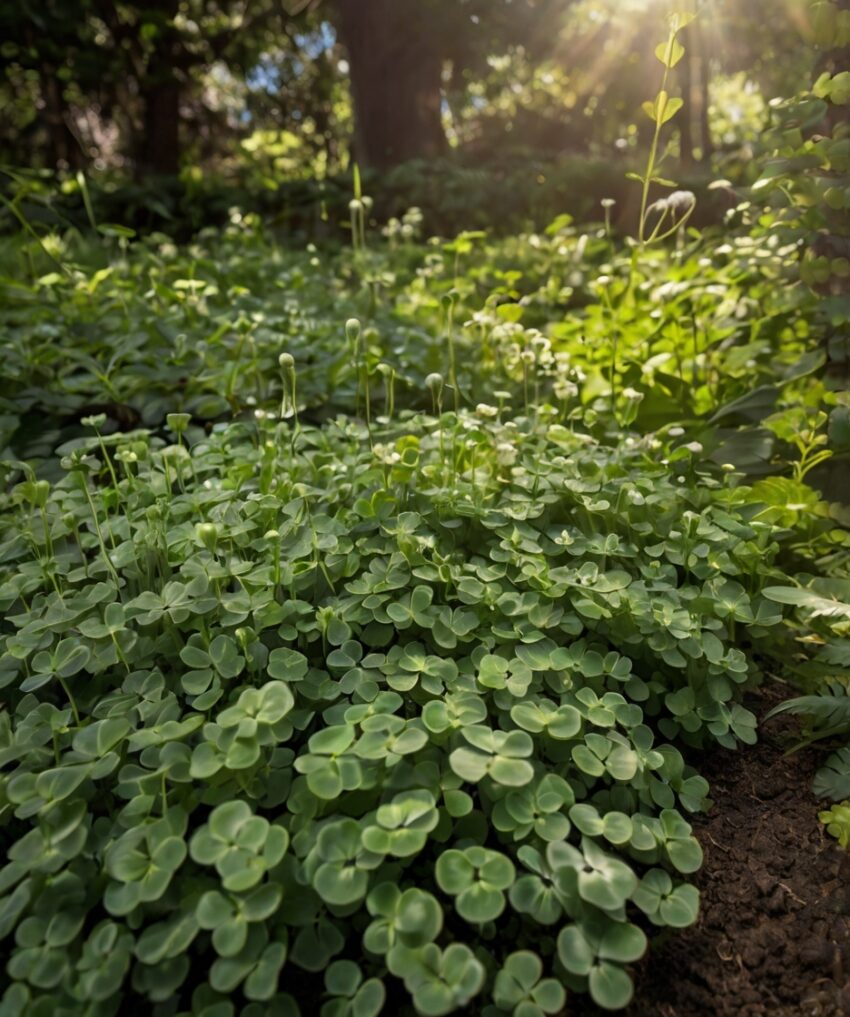
1. Low Maintenance
One of the most appealing aspects of a clover lawn is its low maintenance. Unlike grass, which requires regular mowing, fertilizing, and watering, clover is relatively carefree. It grows slowly, so you’ll need to mow less often. Clover also stays green even during dry spells, reducing the need for constant watering. Plus, clover naturally enriches the soil with nitrogen, meaning you won’t have to use as much fertilizer.
2. Eco-Friendly
Clover lawns are an eco-friendly choice. They require less water, reducing your water usage and helping to conserve this precious resource. Additionally, because clover fixes nitrogen from the air, it improves soil fertility naturally, minimizing the need for chemical fertilizers. This means fewer chemicals leaching into the groundwater and a healthier environment overall.

3. Beneficial for Pollinators
Clover flowers are a favorite among bees and other pollinators. By growing a clover lawn, you’re providing a valuable food source for these essential insects. With pollinator populations declining worldwide, every little bit helps. A clover lawn can be your personal contribution to supporting local biodiversity.
4. Resilient and Hardy
Clover is incredibly resilient and hardy. It can thrive in a variety of soil conditions, including poor soil where grass might struggle. Clover is also more resistant to common lawn diseases and pests, reducing the need for chemical treatments. This hardiness means your lawn will look better for longer without the constant battle against disease and infestation.
5. Soft and Comfortable
Clover lawns are soft underfoot, making them a pleasure to walk on barefoot. The small, cushiony leaves create a lush carpet that’s gentle on feet and paws. If you have kids or pets who love to play outside, a clover lawn can provide a safer, more comfortable surface than traditional grass.

6. Cost-Effective
Maintaining a grass lawn can be expensive, with costs adding up for water, fertilizers, pesticides, and mowing equipment. Clover, on the other hand, is much more cost-effective. Its low water and maintenance needs mean you’ll save money on your water bill and lawn care products. Plus, clover seeds are often cheaper than grass seed, making the initial investment more affordable.
7. Natural Weed Suppressor
Clover is a natural weed suppressor. Its dense growth habit crowds out weeds, reducing the need for herbicides. This not only makes your lawn look better but also means fewer chemicals in your yard. If you’re looking for an organic way to keep weeds at bay, clover is a great choice.
8. Year-Round Green
Clover stays green longer than grass, even in the heat of summer or the chill of winter. Its deep roots help it access moisture more effectively than grass, keeping it green and vibrant when grass might go dormant. This means a more attractive lawn year-round without the constant struggle to keep it looking good.
How to Grow a Clover Lawn
If you’re convinced that a clover lawn is the way to go, here’s a quick guide to get you started:
- Choose the Right Clover: The most commonly used clover for lawns is white clover (Trifolium repens). It’s hardy, low-growing, and easy to establish.
- Prepare the Soil: Clover grows best in well-drained soil. If your soil is compacted or heavy clay, consider aerating it before planting.
- Planting: You can plant clover seed directly into an existing lawn or start from scratch. For an existing lawn, mow the grass short and rake to expose the soil. Spread the clover seed evenly and water it well. For a new lawn, prepare the soil as you would for grass, then sow the clover seed and keep it moist until it germinates.
- Maintenance: Once established, a clover lawn requires minimal maintenance. Mow it occasionally to keep it looking tidy, but otherwise, let it grow naturally.
Conclusion
Switching to a clover lawn offers a host of benefits, from low maintenance and cost savings to environmental friendliness and aesthetic appeal. By choosing clover, you’re opting for a lawn that’s easier to care for, better for the environment, and more enjoyable for you and your family. So why not give it a try and see the difference it can make?







